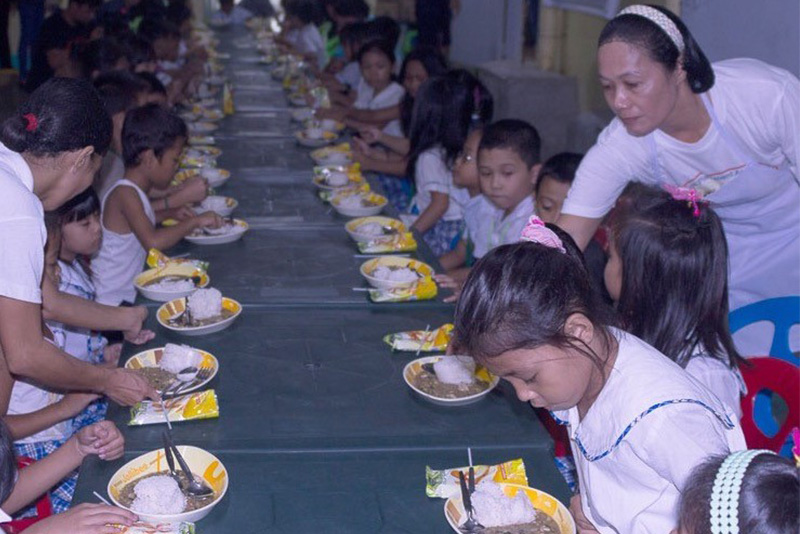Why feeding programs in school could be 'too late' to address child malnutrition

MANILA, Philippines — A learning assessment across Southeast Asia found in 2019 that only one out of 10 Filipino students could read at the basic level expected of them — the second worst among neighboring countries.
But the finding spoke not just of the quality of classroom instruction through the years, but also of what children were being fed.
Child malnutrition is a decades-old problem that the government has tried to solve through, among many initiatives, a school-based feeding program that provides students with everything from hot meals to ready-to-eat milk buns.
But the Department of Education’s provision of free student meals could be "too late" to arrest malnutrition and stunting, according to Benedicta Du-Balalad, the president of the Management Association of the Philippines (MAP)
"Our focus is on the first 1,000 days of the child starting from the womb. While it is good to have a feeding program in schools, to our thinking it is rather late. Because the stunting begins from the mother’s womb," Du-Balalad said on Wednesday at the launch of MAP’s campaign on curbing malnutrition.
Stunting, which refers to being too short for one’s height, significantly impairs human development and in many cases, becomes largely irreversible, according to a policy brief by Thousand Days, an advocacy organization for children.
Studies back the importance of using the first-1,000-day timeframe to close gaps in children's poor diet. Interventions of any kind in the first 1,000 days also "have the greatest power" to interrupt the cycle of stunting, or when mothers themselves have poor nutrition, according to the World Bank.
Cielito Habito, an economist and a member of MAP, said during the press conference that the Philippines can look to Peru as an example for why feeding programs need to be refocused from school-age children to their first 1,000 days.
Peru's 'winning formula'
Peru had halved its stunting rate in less than a decade — becoming an example of a best practice by other countries on solving malnutrition — through its "winning formula" of "investing in nutrition in the first 1,000 days," according to a 2017 World Bank report.
The country implemented a rural health and cash transfer program that targeted pregnanet women and mothers with children of up to two years of age, which led to a reduced stunting rate from 28% in 2008 to 13% in 2016.
"While (school-feeding programs) help address wasting and students’ difficulty concentrating in class, it does not address children’s longer term health," Habito said. Wasting refers to rapid weight loss or inability to gain weight.
Starting early would also help ensure that parents can meet children's nutritional needs before they each the age of 5, by which 90% of brain development has taken place, Habito said.
Habito also compared the issue of children’s malnutrition to climate change, saying that failing to solve it today could lead to greater consequences in the future.
"If unchecked, child stunting will affect cognitive development, which later on will result in lower economic productivity and poorer quality of life. And at that time, it becomes a major impediment to competitiveness and national development," Du-Balalad added.
Saying that child malnutrition is a "demographic time bomb" that could lead to unhealthy adults, Habito and other representatives of MAP called on members of the private sector to work with LGUs, produce healthier food options for employees and help fund more feeding programs.
"MAP is one of the biggest business organizations in the country with a deep bench of experts and members who are into food, retail, health and education," Du-Balalad said. "These are the sectors that we really need to help address this malnutrition."
MAP's campaign follows the Marcos administration's launch of the Philippine Multisectoral Nutrition Project, which is led by the Department of Social Welfare and Development and the Department of Health and funded by a P10-billion loan from the World Bank.
- Latest
- Trending
































